Policy Innovations
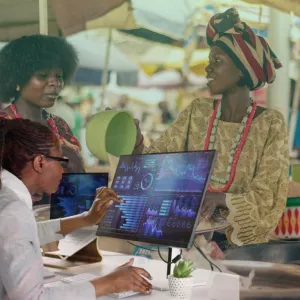
Overview
We aim to strengthen markets, policies, and institutions through evidence-based research, capacity sharing, and pioneering tools like the AI-driven Policy Advisor, contributing directly to global poverty reduction and enhanced food and water security.
Leveraging six interconnected work areas, the Program drives change by setting global development agendas, supporting countries, and building institutional capabilities with cutting-edge capacity tools.
Our goal
Our work contributes through
Where we work
Policy Innovation Hubs in Ethiopia, India, Kenya, Malawi, Nigeria, and policy support in Bangladesh, Egypt, Pakistan, Rwanda, Sri Lanka and 10+ other countries in the Global South.
Challenges
Challenges we address
- Poverty: Slow progress in poverty reduction & job creation exacerbated by growing uncertainties and poly-crises
- Food and water insecurity: Growing geoeconomic complexities and climate risks coupled with malfunctioning markets and underperforming institutions
- Knowledge gaps: Lack of credible and timely evidence for decision making to transform food, land and water systems
Areas of work
Foresight and Prioritization
We will work with partners to develop advanced foresight modeling and data systems and use these to inform decisions on policies, budgets, and investments to drive transformation in food, land, water, and economic systems to enhance nutrition, livelihoods, gender equity, social inclusion, climate resilience, and environmental sustainability.
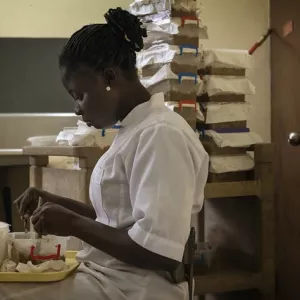
Market-led Transformation
We identify and test innovations for transformative change in food systems. We focus on innovations in policies, institutions, and technologies that bring greater efficiency, inclusive economic benefits, resilience to shocks and environmental sustainability.
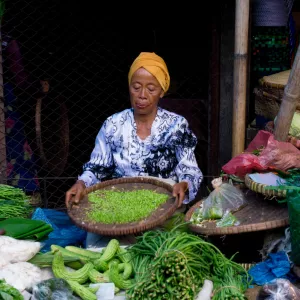
Governance and Political Economy
We will address governance and political economic challenges in strengthening food, land, and water systems amid global mega trends. We will collaborate with partners to provide advanced insights on the governance and institutions that best promote integrated food systems, the political economy of policymaking and implementation, and policy coherence and metrics.
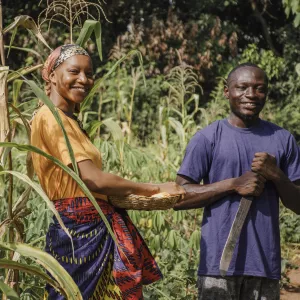
Water-Energy-Food Nexus
We provide solutions for improving water productivity while tackling fragmented policy approaches that disproportionately burden the poorest and most marginalized populations. We will advance climate resilient water management and irrigation policies and share institutional capacity on water management and nexus methods.
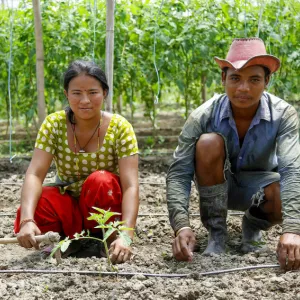
Policy Innovation Hubs & Engagement
We work closely with national governments, think tanks, and regional organizations throughout the policy cycle, from agenda setting and policy design to policy adoption, implementation and reform. We co-create knowledge products with national and regional think tanks to rapidly respond to policy demand and enhance institutional capability, and foster regional and cross-country learning.
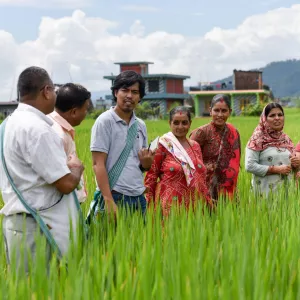
Social Policy and Employment
We are supporting governments, international organizations, and non-governmental organizations in the design and evaluation of large-scale anti-poverty and job creation policies and programs. We are particularly focusing on recommendations that improve cash transfers and graduation programs and programs that foster employment, especially for the youth.
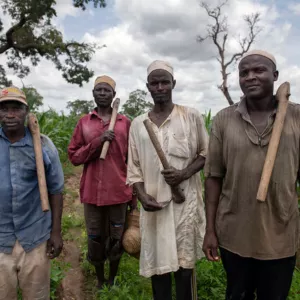
Gender Equality & Social Inclusion
This research program will ensure that women, youth and other often marginalized groups participate meaningfully in policy processes and that public policies advance progress towards gender equality, youth empowerment and social inclusion.
Our approach
Interlinked support across CGIAR’s portfolio
Our program will support the whole CGIAR 2025-30 portfolio, with specific initial collaboration with the Better Diets and Nutrition, Breeding for Tomorrow, Scaling for Impact, Sustainable Animal and Aquatic Food Systems, and Sustainable Farming programs, as well as the Digital and Gender Equality & Inclusion Accelerators.
We are working to share our capacity with an initial focus on National think tanks.
Our expertise
- Our commitment to providing food system-related public goods at multiple geographic and time scales for low- and middle-income countries
- A locally informed and embedded research staff with access to state-of-the-art analytical tools and capacity in multiple disciplines
- Our global linkage to key research and policy-making partners with complementary research and institutional capacities
Events
News
-

Balancing external shocks and domestic reforms: Do U.S. tariffs erode India’s tax reform benefits?
On February 2, 2026, the United States and India finalized a trade deal in which the U.S. will reduce its tariffs from 50% to 18% on merchandise...
-

The future of food demand: Evidence from a global meta-analysis and trend projections
Understanding how food demand responds to income and price changes is essential for anticipating global food needs and expected consumption patterns,...
-
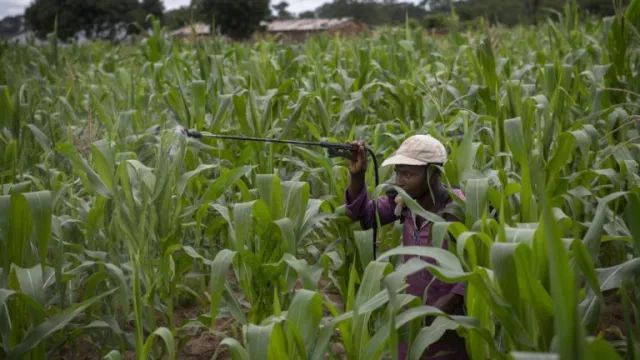
Violent conflicts reshape input use and productivity in smallholder farming: Findings from Nigeria
Many studies have demonstrated that low application of productivity-enhancing inputs such as inorganic fertilizer and improved seeds is a key...
-
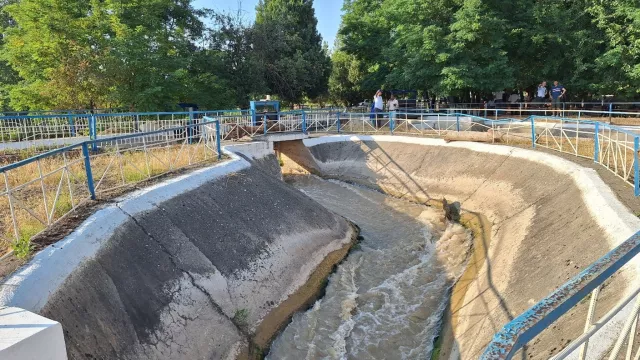
Why subsidies alone won’t drive adoption of water-saving technology: The hidden role of electricity infrastructure and other challenges in Uzbekistan
While Uzbekistan offers generous subsidies to tackle its water crisis, a hidden barrier remains: the power grid. Our research reveals why even 92%...


